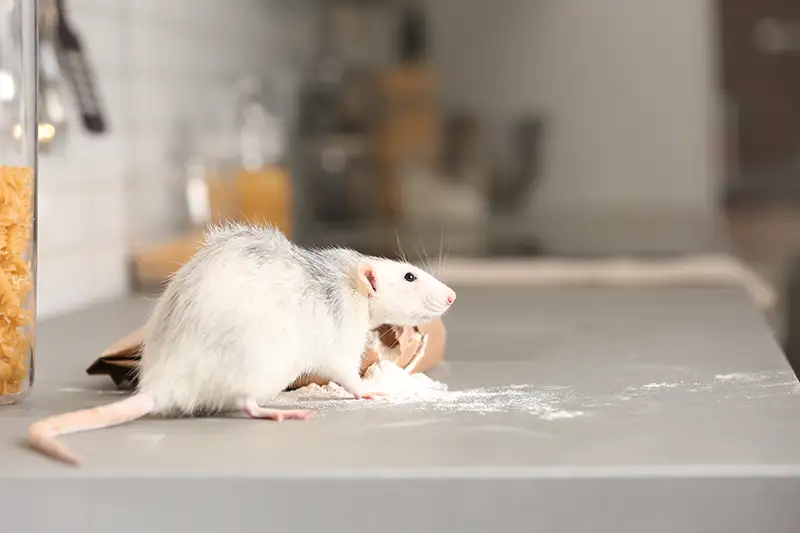In the quest to maintain a safe and comfortable living environment, uncovering the best pest-proofing solutions for homes is a pursuit no homeowner should overlook. Pests aren't just a nuisance; they pose health risks and can damage property. For all homeowners, establishing a line of defense against these unwanted guests is both essential and urgent.
The good news is, with the right strategies and tools, you can effectively keep your home free from pests. Below, we explore some of the most potent ways to pest-proof your abode, ensuring peace and protection for your family and property.

Pest-Proofing Basics: Start with These Essentials
Before delving into advanced strategies, it is crucial to understand the basics of pest-proofing. Start by sealing entry points, as pests often infiltrate homes through cracks and gaps around doors, windows, and foundations. Using caulk or weather stripping can close these avenues.
Additionally, maintaining cleanliness is paramount. Regularly cleaning your home reduces food sources for pests. Also, ensure that trash bins are well-covered and disposed of routinely.
Natural Remedies: Eco-Friendly Solutions for Pest Control
Many homeowners prefer using natural remedies for pest control. These methods are environmentally friendly and safe for children and pets. Essential oils like peppermint and eucalyptus are known for their pest-repelling properties. You can create a DIY spray with these oils and water to deter pests.
Herbs such as basil and lavender, when planted around the house, also act as natural repellents due to their strong scents, which pests find unpleasant.
Technological Solutions: Innovative Tools to Keep Pests at Bay
In recent times, technological advances have introduced innovative ways to manage pests. Ultrasonic pest repellers are devices that emit a high-frequency sound, deterring pests while being safe for humans. These tools are effective in covering large areas and require minimal intervention.
Smart traps are another advancement in pest control. These traps can be monitored remotely, providing updates on pest activity directly to your smartphone.
Professional Services: When to Call in the Experts
Despite the effectiveness of DIY methods, there are situations where professional pest control services are necessary. Severe infestations or dealing with potentially dangerous pests like wasps and termites require expert intervention.
Pest control professionals have access to specialized equipment and treatments that ensure comprehensive pest management. Moreover, regular inspections by professionals can help detect issues before they escalate.
For more insights on DIY pest prevention, you can explore this comprehensive guide to home pest control techniques.
Ensuring Longevity: Continuous Monitoring and Maintenance
Consistent monitoring and maintenance are vital to keeping your home pest-free. Regular inspections, combined with seasonal adaptations to your pest control strategy, ensure continued effectiveness.
Updating your methodologies to reflect the latest insights and pest behaviors can vastly improve your home's defenses.
Extra Tips for Better Pest Control
To enhance your pest control efforts, consider these additional tips: Regularly maintain your landscape to eliminate pest habitats. Clean gutters to prevent pest nesting. Lastly, use light traps for flying insects.
For more advanced guidance, visit this excellent resource on incorporating pest-resistant installations into your home architecture.
Why Pest-Proofing is Non-Negotiable
Beyond the initial inconvenience, pests contribute to significant health hazards and property damage. From carrying diseases to causing structural damage, overlooking pest-proofing is an invitation to trouble.
Being proactive in pest-proofing ensures that such risks are minimized. This comprehensive protection echoes not only in health benefits but also in the economic savings from avoiding costly repairs and medical bills.
A detailed exploration on keeping rodents at bay is available in this insightful article.

FAQ
What are the signs of a pest infestation?
You might notice droppings, strange noises in walls, or damage to fabric and paper. If you see these signs, it's wise to take action or contact a professional.
How often should I inspect my home for pests?
Monthly inspections are advisable to catch potential issues early. Professionals recommend seasonal inspections for comprehensive protection.
Can DIY pest-proofing fully replace professional services?
DIY methods are effective for prevention and small-scale issues. However, professional interventions are necessary for severe infestations.
This article contains affiliate links. We may earn a commission at no extra cost to you.
